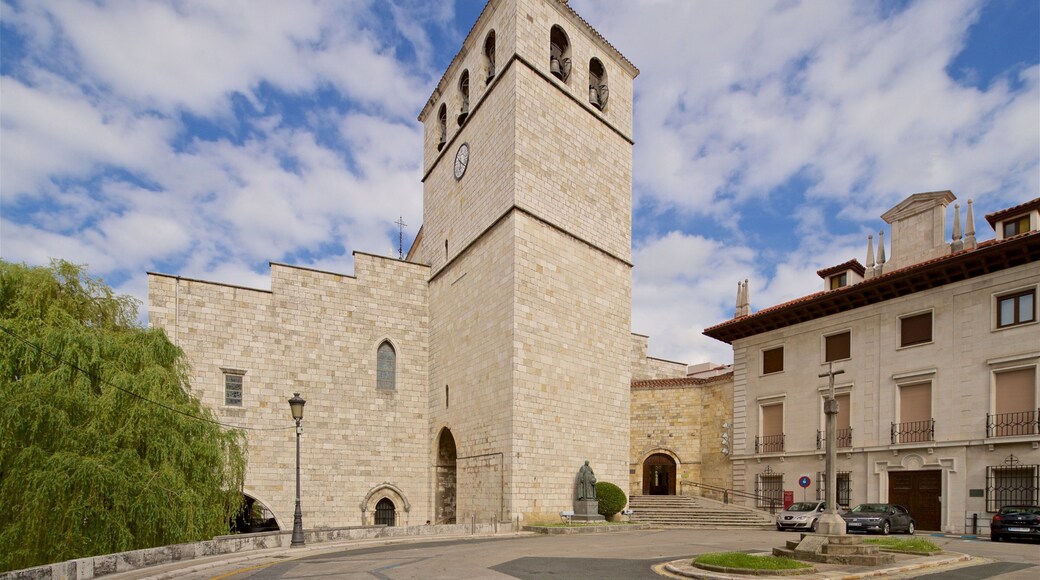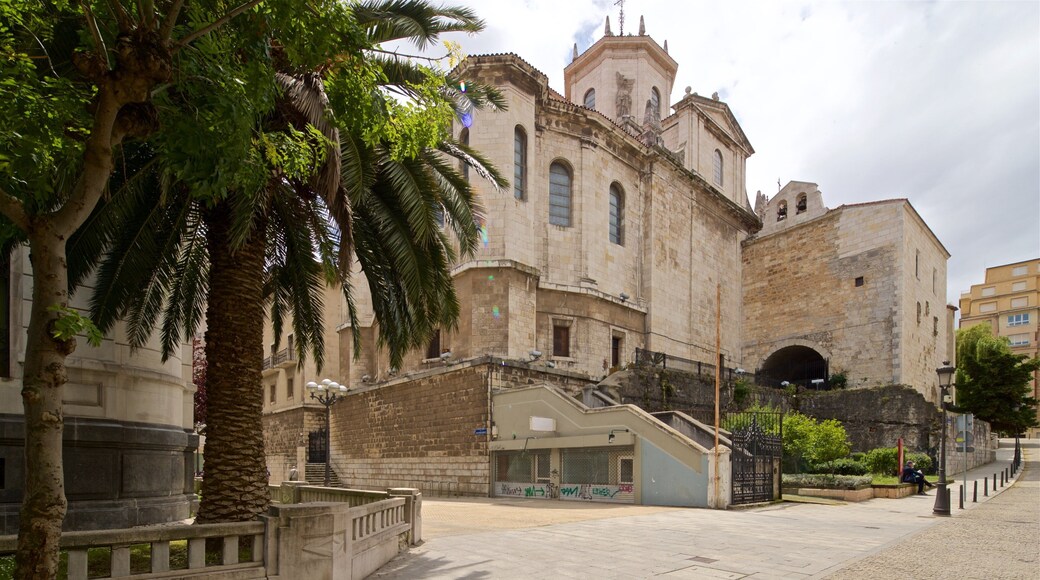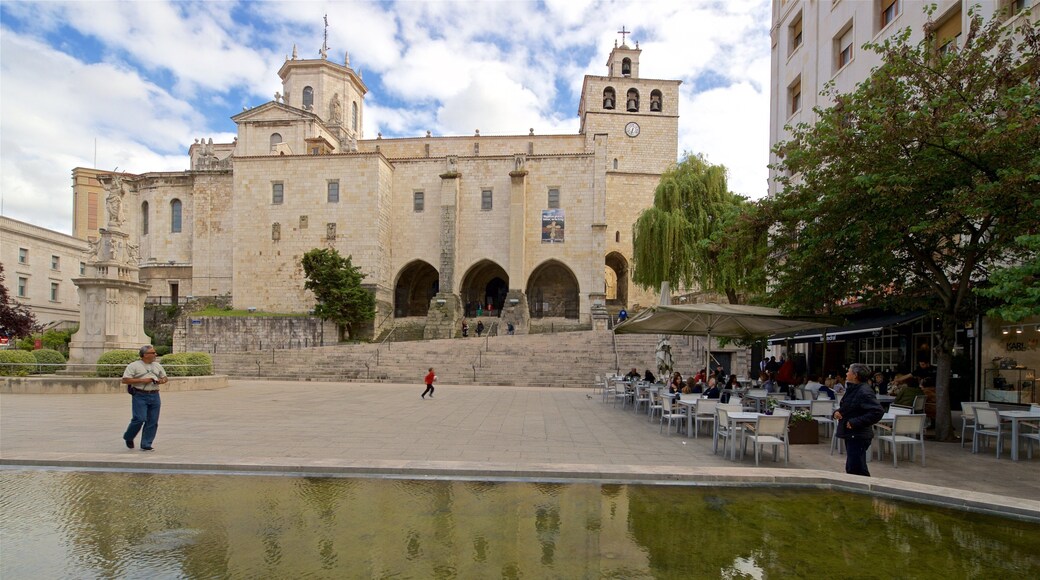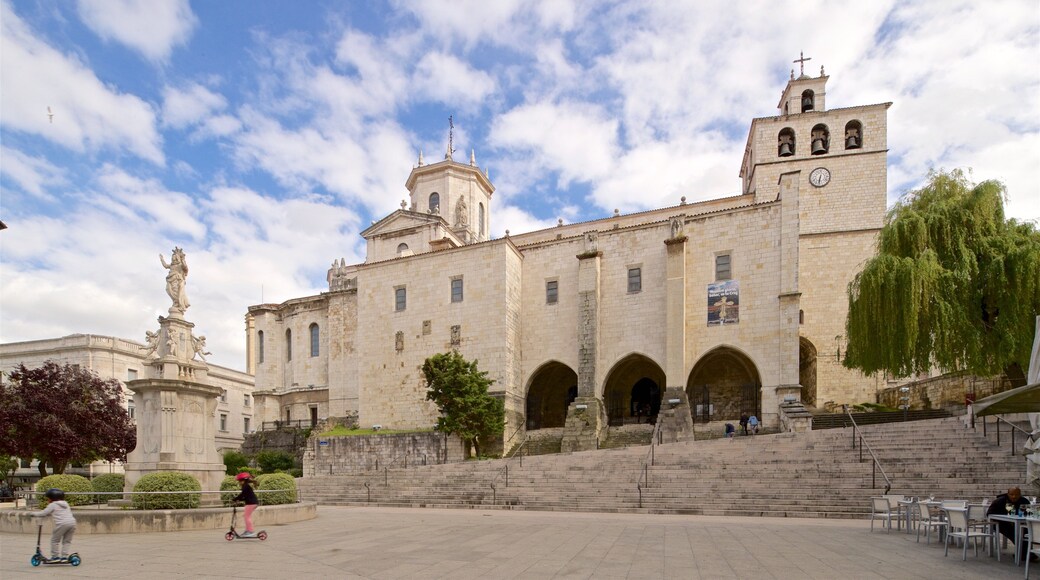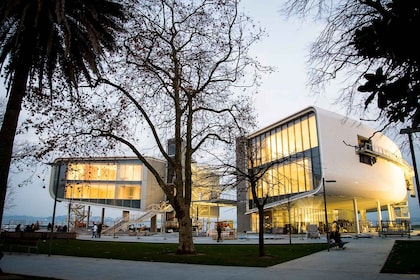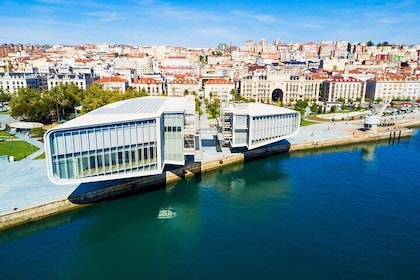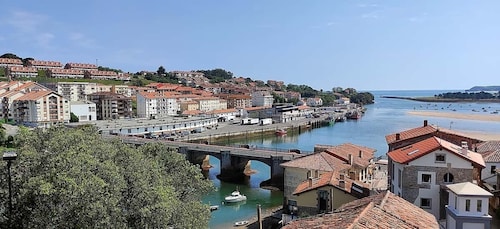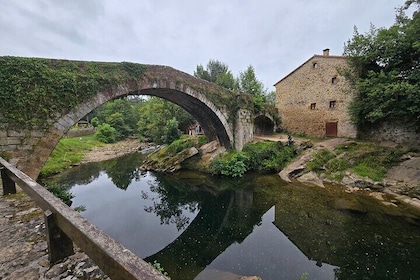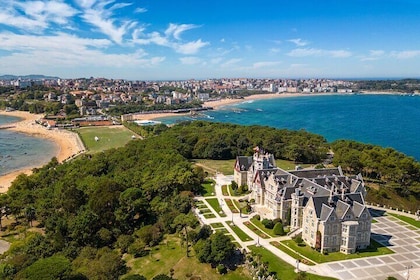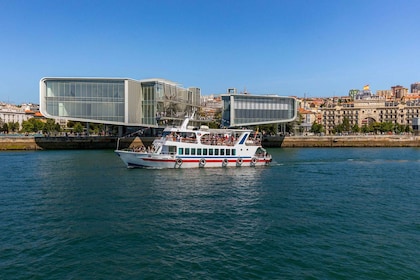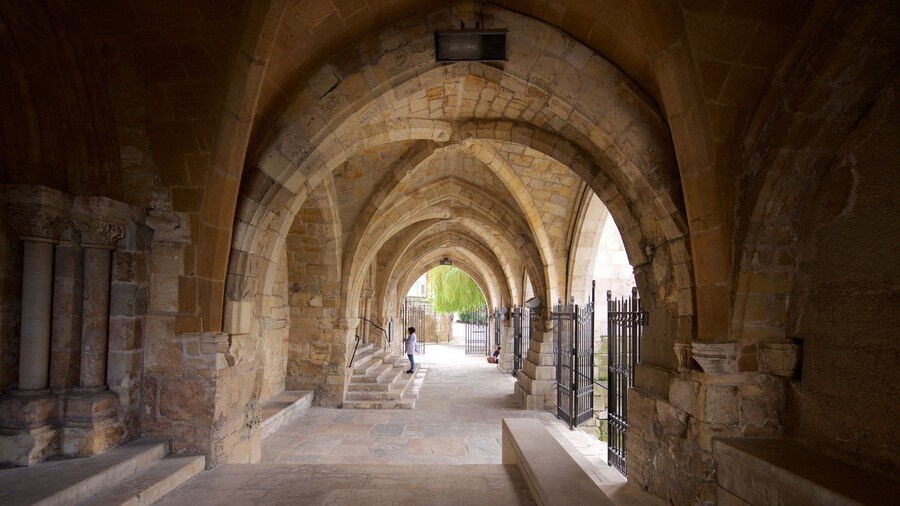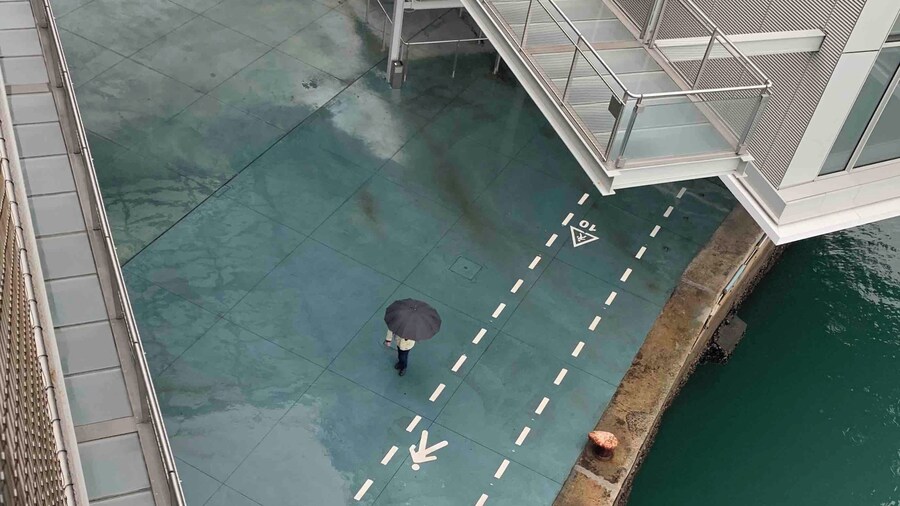This fortress-like building is actually two churches combined and stands on a pile of Roman ruins. Inside, see religious works of art and sacred relics.
Santander Cathedral has been a dominant presence since the 13th century, an austere Gothic structure on the incline of a hill. Explore this grandiose medieval church which occupies a site that once housed Roman baths and later an abbey.
The religious complex is actually two overlapping buildings, the principal basilica and the lower parish church, now a crypt.
Start your visit in the main church building. It suffered serious damage during the devastating fire that almost destroyed Santander in 1941. Consequently, many of the altarpieces are new or come from other churches. Visit the handful of centuries-old side chapels. Study the piece of marble near the sacristy that is inscribed with carvings in Arabic. It is believed to have been taken by Cantabrian sailors during the Siege of Seville in the middle of the 13th century.
Stop by the tomb of the Santander polymath Marcelino Menéndez y Pelayo who died in 1912. Browse the works of art including a copy of The Visitation, an early 16th-century painting by Raphael that depicts Mary the mother of Jesus Christ visiting her cousin Elizabeth who is pregnant with St. John the Baptist.
Access the lower church via the Romanesque doors. See the reliquaries that contain parts of the remains of St. Emeterio and St. Celedonio. Both were Roman legionnaires who were beheaded for professing their Christian faith. According to legend, their severed heads were brought to the city aboard a boat made of stone. Look through a glass section of the crypt's floor to see the remains of Roman thermal baths that were excavated in the early 1980s.
Enjoy a stroll around the colonnaded Gothic cloister which used to surround a secluded orange garden.
The cathedral is open daily although it closes for a few hours each afternoon. Admission is free. Arrive by bus or taxi or drive and park for a fee in nearby garages. If you are already in the center of the city, the Santander Cathedral is a short walk from other attractions such as Plaza Porticada and the Museum of Prehistory and Archaeology of Cantabria.
